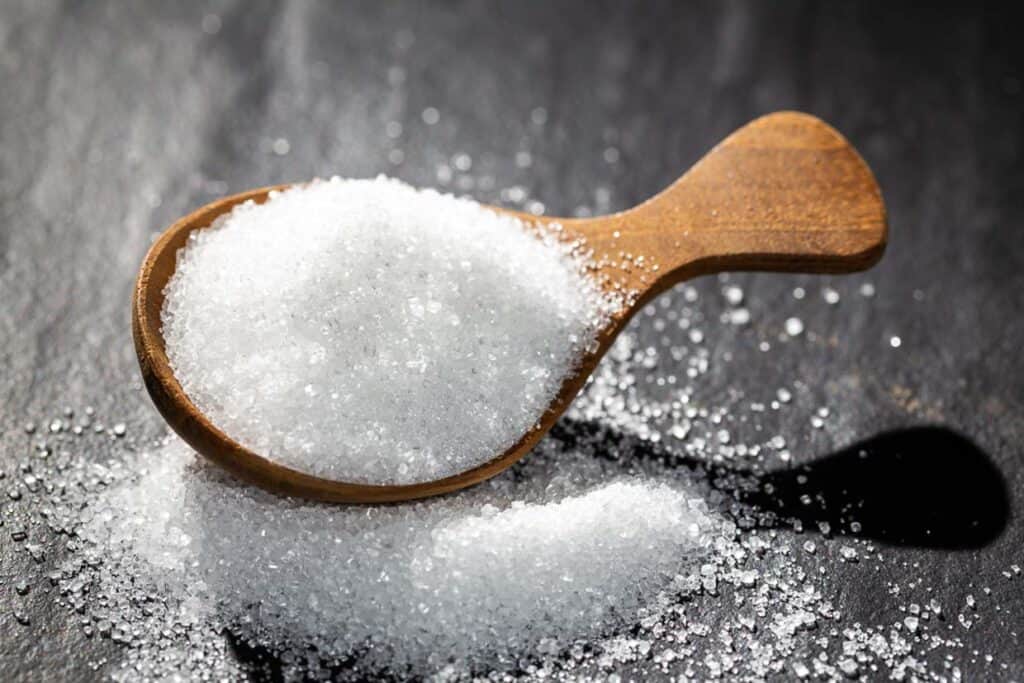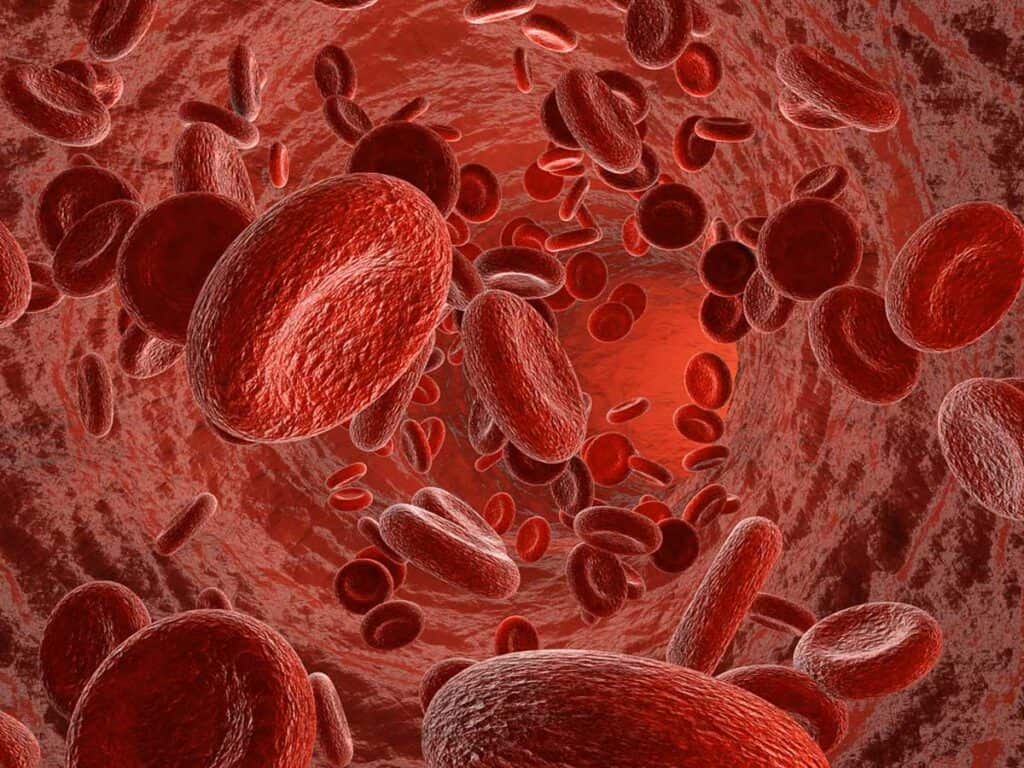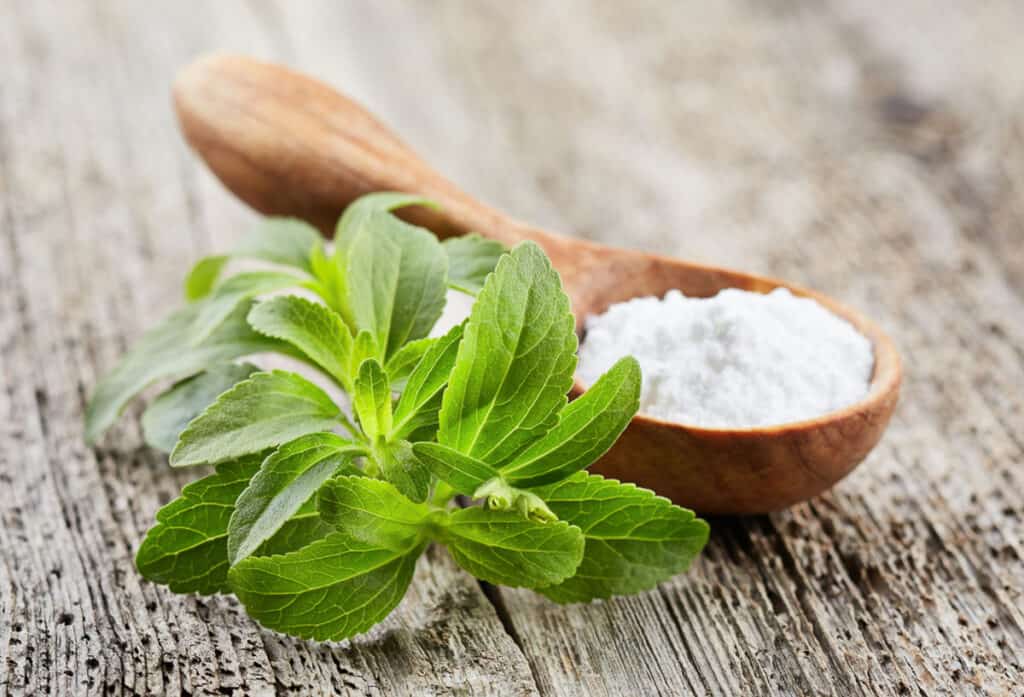If you’ve been using erythritol, a sugar alcohol and zero-calorie sweetener, take heed: it may not be a good choice. With new evidence to suggest that this sugar replacement could actually be harmful, you may want to think twice before reaching for this sweetener to add to your morning coffee.

A new study finds that erythritol, a popular sugar replacement, may not be the best choice for you. Linked to blood clotting, strokes, heart attacks, and even death, this glittering sugar-like crystal looks pretty, but it could also be deadly.
What Is Erythritol?
Erythritol, a widely-available sugar substitute, is often used interchangeably with sorbitol and xylitol. These are familiar names to anyone looking for sugar-free foods or following a keto lifestyle. Erythritol is a sugar alcohol, a carbohydrate that’s found in some fruits, vegetables, and fermented foods wine. It is processed, has fewer unpleasant side effects than other sugar alcohols, and is relatively inexpensive.
This popular sugar substitute looks like sugar, tastes like sugar — though it is 70% less sweet than sugar — and you can cook with it just like sugar.
It is a zero-calorie, non-glycemic sweetener, so it does not affect blood sugar levels, making it an attractive alternative for diabetics or anyone on a low-calorie diet. Unlike xylitol, this sweetener won’t harm your pets.
When you eat something with erythritol in it, your body doesn’t metabolize it well. Instead, it ends up in your bloodstream until it leaves via urine.
The Study
The new study, published in Nature Medicine, reveals an alarming link between erythritol and heart attacks, blood clots, strokes, and death. Examining erythritol levels in almost 3,000 study participants, researchers found that people with the highest levels had twice the risk of suffering severe coronary- and stroke-related incidents.
Researchers examined the effect of erythritol in our blood and saw a relationship between the sugar alcohol and how easily our bodies form blood clots. Blood clots could become dislodged and cause a heart attack if they travel to the heart or a stroke if they travel to the brain.
Investigators also found that those who consume processed foods containing erythritol had even greater risks of blood clotting. And worse, the high levels of erythritol stayed in their bodies for days afterward. Dr. Annie Lampella is skeptical and urges people to look at the whole picture.
“The article published in Nature Medicine by Witkowski et al. highlighted four studies that showed a possible association between erythritol consumption and major cardiovascular (CV) event risk. However, each of these studies had limitations.
Two of the studies were in-vitro and in-vivo studies that showed a positive association between higher erythritol levels and increased platelet aggregation and thrombus formation; however, these types of studies can’t always lead to generalizations that there actually is a concrete association as there are many other factors that come into play within the human body that can have an effect on platelet aggression and clotting.
Another study was a cohort study following a large sample size of older individuals who have a high risk of CV or a history of a prior major CV event over three years. Their findings showed that circulating levels of erythritol were associated with a higher risk of a major CV event within a 3-year period. However, this study comes with many limitations. First, they only measured erythritol levels once at the beginning of the study and never again. We don’t know if the individuals continued to consume erythritol on a daily basis or even how much was consumed. Also, we don’t have information on their diet, lifestyle, or medications, which can have a profound effect on CV health and can cause similarly increased risks of major CV events.”
— Dr. Annie Lampella, PharmD, Keto Focus

Erythritol is Everywhere
A popular additive to many products, even those labeled natural, food manufacturers have added erythritol to diabetic-friendly products, sugar-free products like specialty chocolate, and other processed foods for years. It is found in other sweeteners, too, like stevia and monk fruit products, so reading the label is always a good idea.
Erythritol’s Cooling Effect
Why does erythritol have a cooling effect? If you’ve ever tasted erythritol, you might notice that it has a cooling, almost minty sensation. This is because it absorbs energy from your mouth as it dissolves. Manufacturers blend it with stevia, monk fruit, and even xylitol and inulin to combat this cooling sensation.
Caution or Panic?
More studies need to be done, and people shouldn’t panic over the results of this one limited study. People more prone to heart attack, blood clotting, or stroke should be wary, however, because their risk increases substantially, especially when consuming processed foods or larger amounts of erythritol.
People with existing conditions like diabetes or heart disease should also be careful and limit or eliminate their consumption of this sugar alcohol, at least until more studies can be done.
Dr. Lampella goes on to say, “Based on this article, we can’t fully conclude that consuming erythritol will cause a cardiovascular event or that there is even an increased risk. All we know is that there is a possible association, but more research needs to be done with better-controlled studies.”
Safe Sweeteners
The next time you’re looking for a sugar-free sweetener, reach instead for allulose or BochaSweet, a natural sweetener made from kabocha extract. The less processed, the better, and if there’s any doubt, ask your family doctor.
If you’re cooking with a sugar substitute, many of them are interchangeable. Follow the recipe, swap in your favorite sweetener, or look for a blend containing allulose.
“It’s important to remember with any alternative sweeteners that there is not a large amount of research into its safety — and this includes sweeteners developed from naturally occurring compounds in fruits and vegetables (such as erythritol). Just because a compound is naturally occurring in plants, it doesn’t mean that it’s safe in very large doses.” — Sharon McCaskill, a Dietetic Intern pursuing RDN credentials and an MS in Nutrition and Dietetics, The Helpful GF

The Final Word
Studies like this always make headlines, and when products that have long been considered safe for consumption are suddenly called into question, many take notice. However, more studies need to be done before we can conclusively say that erythritol is, in fact, dangerous. That being said, if you’re already in the high-risk category because of diabetes or heart disease, you may want to set the erythritol aside, at least for now.
Jenn Allen is a retired chef turned cookbook author, blogger, and traveler. She lives at home with her family and the cats that rule them all. Sign up for all her best sugar-free recipes at Keto Cooking Wins.